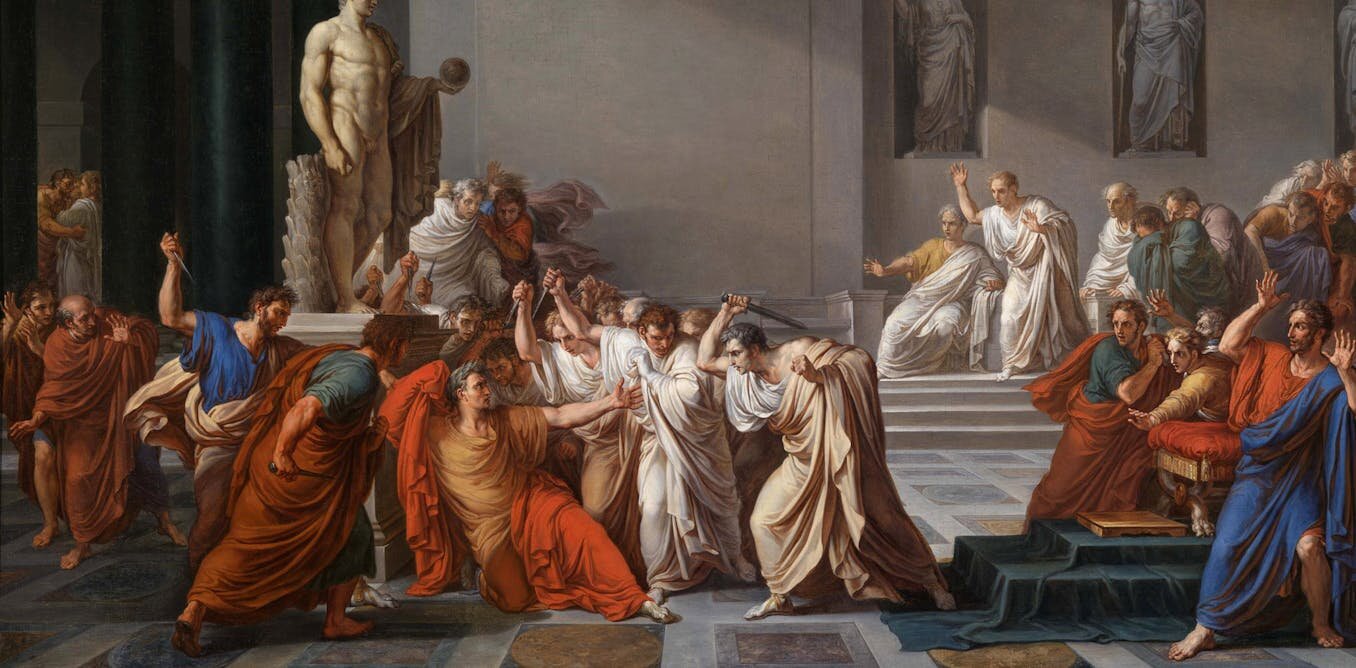I joined Turchin and a few others who were establishing a new field—a new way to investigate history. It was called cliodynamics after Clio, the ancient Greek muse of history, and dynamics, the study of how complex systems change over time. Cliodynamics marshals scientific and statistical tools to better understand the past.
The aim is to treat history as a "natural" science, using statistical methods, computational simulations and other tools adapted from evolutionary theory, physics and complexity science to understand why things happened the way that they did.
![]()
One of the most common patterns that has jumped out is how extreme inequality shows up in nearly every case of major crisis. When big gaps exist between the haves and have-nots, not just in material wealth but also access to positions of power, this breeds frustration, dissent and turmoil.
"Ages of discord", as Turchin dubbed periods of great social unrest and violence, produce some of history's most devastating events. This includes the US civil war of the 1860s, the early 20th-century Russian Revolution, and the Taiping rebellion against the Chinese Qing dynasty, often said to be the deadliest civil war in history.
All of these cases saw people become frustrated at extreme wealth inequality, along with lack of inclusion in the political process. Frustration bred anger, and eventually erupted into fighting that killed millions and affected many more.
![]()
Perhaps one of the most surprising things is that inequality seems to be just as corrosive for the elites themselves. This is because the accumulation of so much wealth and power leads to intense infighting between them, which ripples throughout society.
In the case of Rome, it was the wealthy and powerful senators and military leaders like Julius Caesar who seized on the anger of a disaffected populace and led the violence.
This pattern also appears at other moments, such as the hatred between southern landowners and northern industrialists in the run up to the US civil war and the struggles between the Tsarist rulers and Russia's landed nobility during the late 1800s.
Meanwhile, the 1864 Taiping rebellion was instigated by well educated young men, frustrated at being unable to find prestigious positions in government after years of toiling away at their studies and passing the civil service exams.
What we see time and again is that wealthy and powerful people try to grab bigger shares of the pie to maintain their positions. Rich families become desperate to secure prestigious posts for their children, while those aspiring to join the ranks of the elite scratch and claw their way up. And typically, wealth is related to power, as elites try to secure top positions in political office.
![]()
These patterns probably sound familiar. Consider the college admissions scandal in the US in 2019.
![]()
Donald Trump is only one recent and fairly extreme version of this motif that pops up time and again during ages of discord
![]()
If the past teaches us anything, it is that trying to hold on to systems and policies that refuse to appropriately adapt and respond to changing circumstances—like climate change or growing unrest among a population—usually end in disaster. Those with the means and opportunity to enact change must do so, or at least to not stand in the way when reform is needed.
![]()



Damn that was painful read if you can apply at least some historic materialism.
Their solution is basically still charity, "healthcare please" and the trust the capitalist elites will do the right thing, suddenly.
No, you bloody hacks, you don't know more, and even more importantly, you do not come at this with good will and honest effort, like for example the part about good reactions for Covid did not included any mention of China. You are just burgeoisie inteligentsia dogs the exact same as the ones who for decades hide the data about climate, plastics etc. and even in the face of "polycrisis" can only look at the godly distant faces of your masters and very quietly plead for mercy in packages of size reasonable and agreeable with "polycrisis" stage capitalism.
One of the fascinating by-products of the Liberal "end of history" mentality is that they believe that the collective "west" know more about every topic than older/other societies. They cannot fathom that western capitalist society doesn't have all the answers and omits and censors information on topics that contradict the western narrative because...the capitalists just say they don't?
These are the same people who would invoke 1984 in every article they write about China. Maddening stuff.
Overdosing on idealism